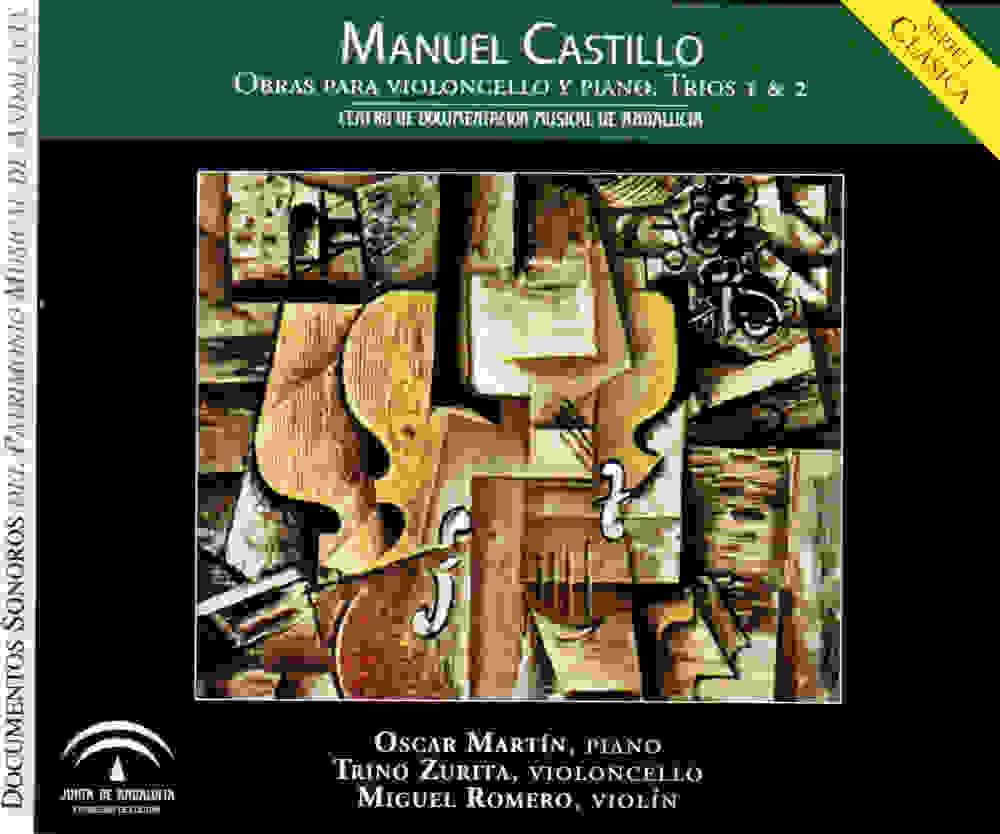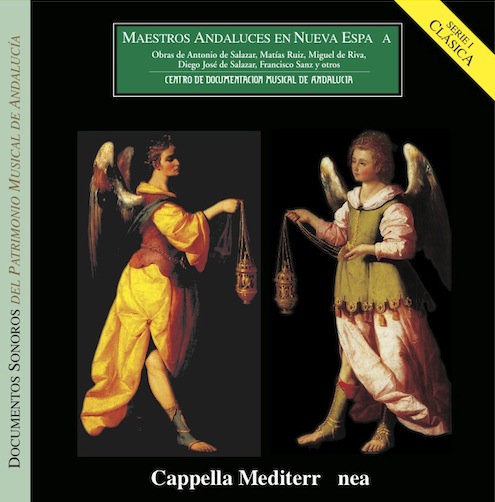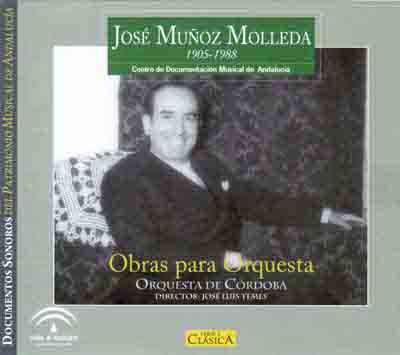Maestros Andaluces en Nueva España
Obras de Antonio de Salazar, MatÃas Ruiz, Miguel de Riva, Diego José de Salazar, Francisco Sanz yCappella Mediterranea
Music and Andalusian musicians in New Spain The musical links between New Spain and Andalusia have existed since the earliest days of the discovery and the conquest. Surely that "maese Pedro, he of the harp ", mentioned by Bernal Diaz del Castillo upon arriving on American soil with Hernán Cortés’ troops, was a member of the first group of Andalusians who came to settle in the newly-conquered America. But the passing of time, particularly after the foundation of new cities and the construction of their cathedrals, brought closer the links with the music of Andalusi...+ info
El DelfÃn de Música
Obras de Luys de NarváezMarta Almajano, Soprano
Juan Carlos Rivera, Vihuela
Luys de Narváez "Los seis libros del Delphin" The six books of the Dolphin of music in ciphers for playing the Vihuela. By Luys de Narbaez. Dedicated to the most Illustrious Lord, Don Francisco de los Cobos, Comendador Mayor of León, Adelantado of his Imperial Majesty, and this first book deals with the eight modes for playing on diverse parts of the Vihuela. MDXXXVIII. With Imperial Privilege for Castile & Aragon & Valencia & Catalonia for ten years. Under this title the Granadine vihuelist Luis de Narváez published his book of vihuela mu...+ info
José Muñoz Molleda
Obras para OrquestaOrquesta de Córdoba
Conductor: José Luis Temes
JOSÉ MUÑOZ MOLLEDA: WORKS FOR ORCHESTRA In strictly chronological terms, José Muñoz Molleda must be considered a member of the so-called Generation of 27 (also the Silver Generation or the Generation of the Republic), because he borra in the sarne year (1905) as for example Ernesto Halffter, Emilio Lehmberg and Jesús Bal y Gay. Then, he was a year older than Gustavo Pittaluga and Simón Tapia-Colman (1906) and a little younger than Jesús García Leoz (1904), Evaristo Fernández Blanco and Rosa García Ascot (1902), Arturo D&...+ info
Nuevo Disco: OBRAS PARA VIOLONCELLO Y PIANO. TRÃOS 1 Y 2. MANUEL CASTILLO

Almaviva
Almaviva aims to highlight the workof such illustrious Andalusians as Manuel de Falla and Joaquín Turina.
Edited
Junta de Andalucía. Consejería de Cultura
Coordinated
Centro de Documentación Musical de Andalucía
Produced
Agencia Andaluza de Instituciones Culturales
+ More
New in Almaviva
See the latest Almaviva.
Go to News
Buy our records
Shop in Almaviva all disks of our artists.
Simply access the Online Purchase section and select the disks you want.
In short time you will receive in your home.
Go to online Shopping




